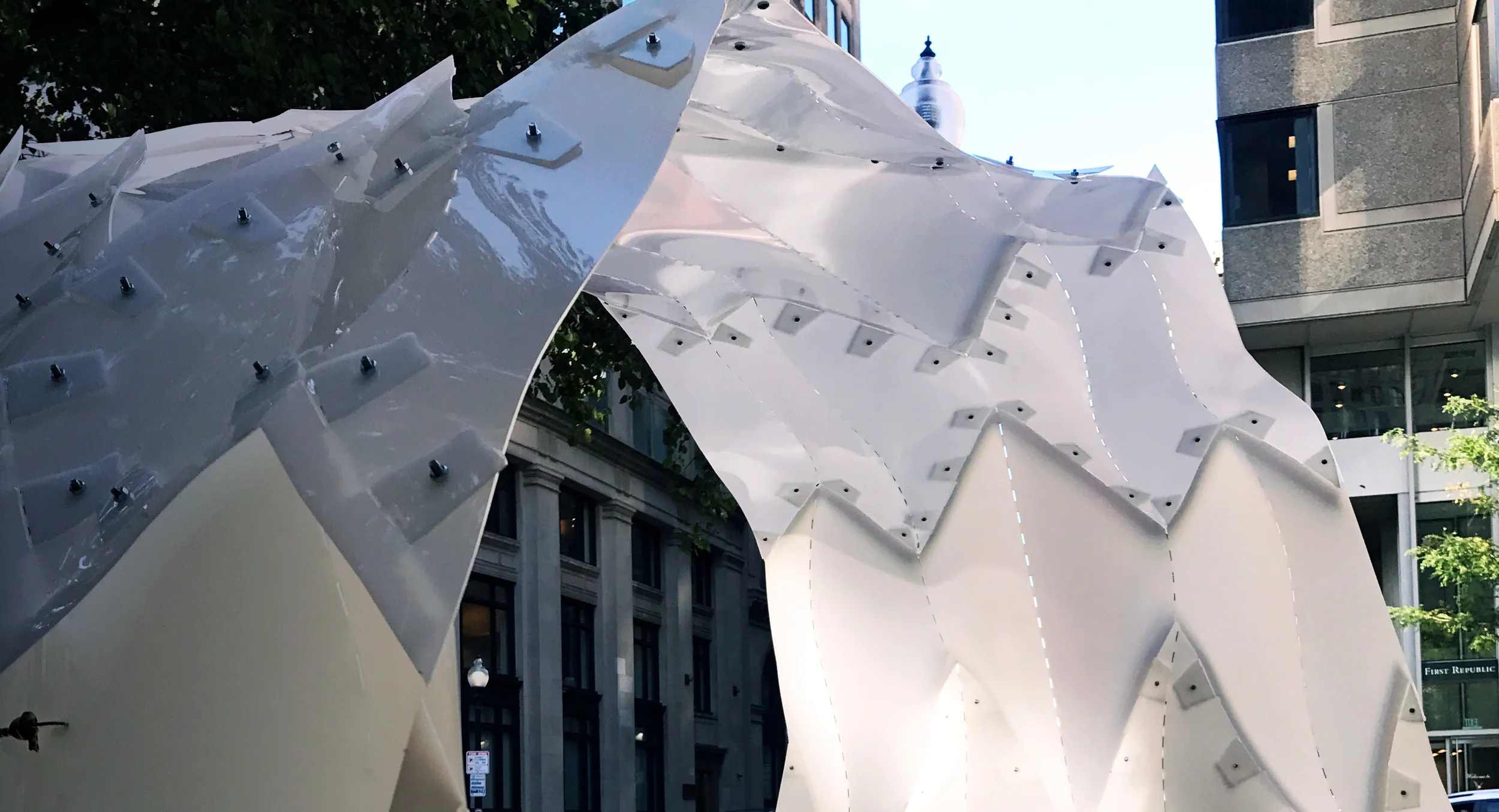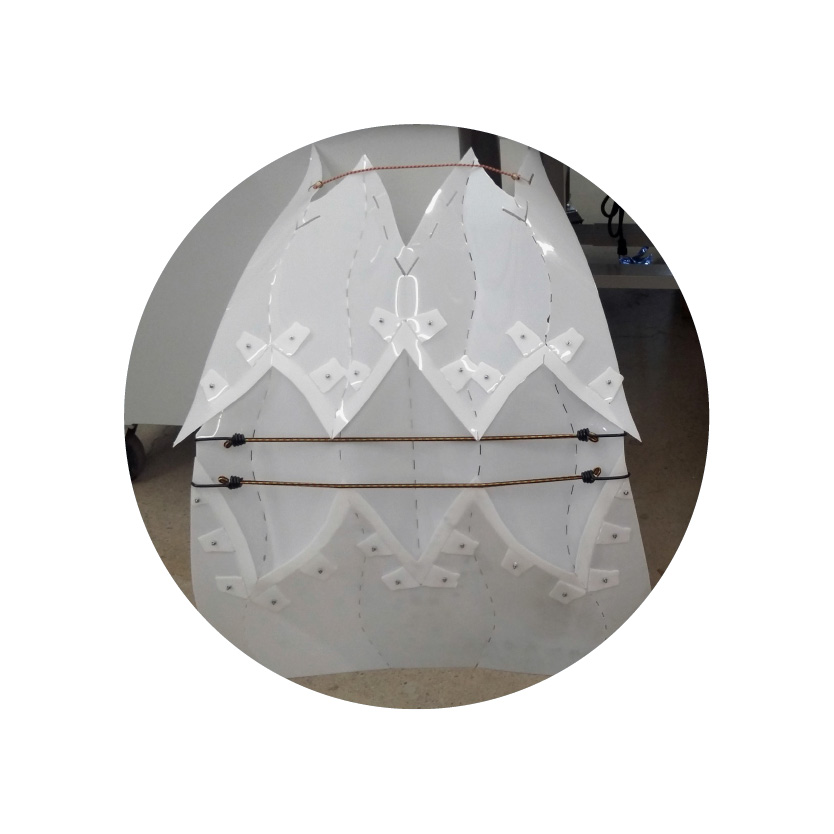Structural Folding
This research on structural folding integrated principals from curved-crease folding geometry into a computational workflow. The goal was to create a curved form with structural integrity from a single perforated and folded piece of material.
In curved origami each sub-surface has to be developable, meaning that it can be flattened into a plane without distorting it. In other words, the surface can be made by transforming a plane. A series of studies was completed using the principals of curved origami. In curved origami, stress is distributed more gradually across the surface, whereas in regular folding, stress results in either tension or compression.
The pattern for the final form was developed from multiple reflections of developable surfaces created by parts of a cylinder or cone. These patterns were then tested through the creation of paper models, resulting in a final model that was then developed at full scale.
This project was completed as part of Arrowstreet's year-long grant with Autodesk BUILD Space. Autodesk provides access to a 30,000 SF space for conducting material and fabrication research. Learn more about the Autodesk BUILD Space.
Developable Surfaces
A bottom-up design approach was used in which forms were created from multiple reflections of developable surfaces created by parts of a cylinder or cone. This process provided with less initial control over the final result, the design first needed to gain control over the reflections created by the geometries before determining the final design.
Geometric Pattern
Following formal digital and paper design experimentation with creased structures, a final design pattern was developed. A curved surface was created from a single perforated and folded piece of material. A tabbing system was used to secure multiple plates together.
Final Form
The final structure, developed from a curved crease pattern, has both flexibility and structural integrity. It is assembled easily out of a planar sheet of polyethylene.






